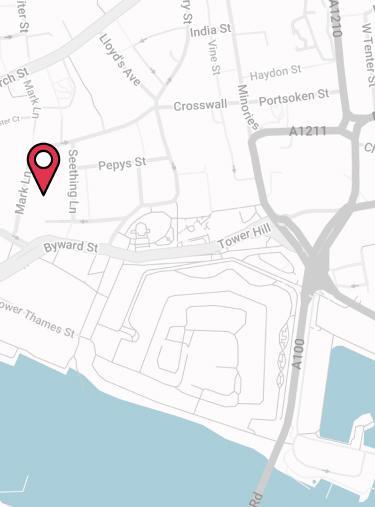
What Does Critical Illness Insurance Cover?
Before taking out a policy, it’s important to understand what Critical Illness Insurance will cover. If you don’t, you could run the risk of a claim not paying out in the future.
In our below guide we talk you through everything you need to know and consider in terms of getting the right cover from a Critical Illness Policy.
What Is Critical Illness Insurance?
Before we jump into what is covered by Critical Illness Insurance, lets just recap on what it is. A policy would provide you with a lump sum cash payment should you suffer one of specified number of serious medical conditions.
The conditions covered will be specifically listed in the terms of the policy. It’s important to note that if you do suffer from a condition outside of those listed, you cannot make a claim.
Most insurers cover around 40 conditions; however, there are some that protect against more than 100, and some that insure against fewer than 10, so check your policy carefully.
The benefit amount paid from a Critical Illness claim can be used to cover:
- Repaying a mortgage
- Keep up with bills
- Making modifications to your home to suit a new disability.
What Conditions Does Critical Illness Insurance Cover?
The so-called ‘big three’ conditions which tend to be covered are cancer, heart attacks and strokes. These make up around 80% of all Critical Illness Insurance claims.
When it comes to what’s covered by Critical Illness Insurance, look beyond simply the number of conditions covered.
It’s easy to get bogged down when comparing policies by being overly concerned with which insurers cover more conditions, but it’s the definitions of the covered conditions that really matter.

Although most policies will cover around 40 conditions, as you can see nearly 90% of claims are made up of just five common critical illnesses.
This is why it is so important to make sure your policy has excellent definitions of these top conditions.
Samantha Haffenden-Angear
Independent Protection Specialist
Policy Definitions
Does your policy protect against ‘minor’ instances of critical illnesses (e.g. partial sight loss rather than total blindness, or a transient ischaemic attack rather than a full-blown stroke)?
Similarly, will your policy provide cover for early stage diseases, such as stage 1, non-invasive cancers? Some policies, for instance, won’t always cover breast cancer even when a lumpectomy or mastectomy is required. Others may not cover malignant skin cancer, so check carefully.
What you may receive is a partial payout from your insurer, e.g. 25% of the sum assured for a minor incident of a covered illness. This leaves money in the pot if you were to later suffer another critical illness, but does mean you may not necessarily receive your whole payout.
Clinical Definitions
Look at the clinical diagnostic criteria necessary to make a claim, also.
For instance, most insurers will require extensive medical evidence, such as diagnostic imaging of the brain to assess the severity of a stroke or scans to check damage to the heart after a heart attack as well as medical reports.
Others are more lenient, allowing a claim to proceed with only evidence from a consultant neurologist, cardiologist etc. that reveals a stroke or heart attack has taken place and has caused impairment.

At Drewberry we have access to a special tool that ranks the UK’s leading Critical Illness Cover not just in terms of what is covered but also on the likelihood the policy will pay out for conditions an individual like you is most likely to suffer.
Rauri Taylor
Independent Protection Specialist
What Doesn’t Critical Illness Insurance Cover?
It’s important to be aware that Critical Illness Insurance doesn’t offer any return on your premium payments, unless you make a successful claim.
It’s not a savings and investment product, so there’s no cash-in value at any time. If you stop paying your premiums, your cover will end.
Critical Illness policies do not provide any cover against redundancy.
They are also not designed to replace a regular salary – the payment is a one-off lump sum. If you’re seeking a monthly payment to allow you to maintain your outgoings if you can’t work, Income Protection Insurance is likely to be more suitable.
Pre-Existing Medical Conditions
If you have a pre-existing medical condition or if, for example, you’ve suffered from cancer and have been given the all-clear, it may not always be possible to get cover.
When you apply for a policy you’ll need to accurately declare your medical history and, based on this, the insurer may do one of three things:
- Offer the policy on its standard terms
- Place an exclusion on the policy relating to the pre-existing condition
- Cover the pre-existing condition but charge a higher premium to reflect the increased risk

Getting Critical Illness Cover with a pre-existing condition or after a serious illness can be tricky.
If you need help please do not hesitate to pop us a call on 02084327333 or email help@drewberry.co.uk.
Alex Weir
Independent Protection Specialist
Does Critical Illness Insurance Cover Death?
If you’re looking to provide for your loved ones after your death, Critical Illness Insurance isn’t typically an appropriate option.
While a lump sum payout could continue to benefit your family after you’ve gone, critical illness policies typically come with a survival period. This means that you’ll need to live for a set period of time – often 14 days – after a critical illness is diagnosed in order to qualify for the payout.
Should you require a payout for your family after your death, the product to consider is Life Insurance. This is often sold alongside Critical Illness Cover and combining the two covers is unlikely to cost much – if anything – more than a standalone Critical Illness policy.
You have two options when buying these insurances together:
- Accelerated Cover
With an integrated policy there can be only one payout, meaning that – should you make a successful critical illness claim for the full sum the policy then terminates– there’ll be no further payout should you pass away. - Additional Cover
There are separate pots of Critical Illness and Life Cover, this allows the Life Insurance element of the policy to continue after a successful critical illness claim and would payout again on death.
Critical Illness Exclusions
There are likely to be some exclusions on a critical illness policy, beyond any examples of pre-existing medical conditions and / or ‘minor’ conditions not eligible for a payout as discussed above.
Each insurer will offer cover only up to a set age, while many place limits on term lengths.
Certain providers may not cover critical injuries sustained during illegal activity, or conditions contracted through use of illegal drugs.
Hazardous Activities
Other exclusions can be as diverse as the range of policies available. For example, should you enjoy winter sports it’s typical for an insurer to offer cover if an accident happens as a result of recreational, on-piste skiing, but excluded if it occurred during a ski race.
Although these policies don’t tend to have that many standard / automatic exclusions, when you apply the insurer may add additional exclusions depending on your health and whether you have any dangerous hobbies.
Should I Cover My Kids On My Policy? Watch Our Quick Specialist Video
Not sure whether to add your kids to your Critical Illness Insurance policy? Drewberry’s Independent Protection Specialist, Alex Weir, gives us his insight into why adding children to your policy is a good idea. Just press play. 👇
Additional Benefits with Critical Illness Cover
Many policies offer additional levels of cover that may be included as a standard feature, or purchased at additional cost.
Some examples of such extras may include:
- Global medical treatment
Provides access to the latest medical treatments and specialists in hospitals outside the UK if you’re diagnosed with one of the illnesses listed on the policy - Children’s Critical Illness Cover
Usually included as standard but sometimes an optional extra, this typically pays the lower of 50% of the sum assured or £25,000 if your child is diagnosed with one of the critical illnesses listed in the policy - Second medical opinion service
Provides access to a leading medical specialist in their field if you’re diagnosed with a critical illness - Medical helpline
Provides access to a support line, usually staffed by medical professionals, to help with medical conditions - Bereavement counselling
Should the insured pass away, their loved ones may get access to a bereavement counselling service - Healthy lifestyle discounts
Insurers will sometimes offer discounts for healthy living, such as achieving fitness goals (e.g. step count, gym visits).
Comparing Critical Illness Quotes
The obvious way to find out exactly what Critical Illness Insurance covers is to read the terms and conditions of each policy.
Our quick and easy online Critical Illness Cover comparison service allows you to not only compare the cost of cover but also view the key facts of each policy on the market and the conditions that are covered.
We deal with these policies every day and have tools in-house to compare the illness definitions side-by-side meaning that you don’t need to spend your own free time trawling through insurance small print.

If it is all getting a little confusing and you want to talk through your options to make sure you find the most suitable cover please don’t hesitate to get in touch.
Pop us a call on 02084327333 or email help@drewberry.co.uk.
Samantha Haffenden-Angear
Independent Protection Specialist at Drewberry
Why Speak to Us?
When it comes to protecting yourself and your finances, you deserve first-class service. Here’s why you should talk to us:
- There’s no fee for our service
- We’re an award-winning independent insurance broker, working with the leading UK insurers
- You’ll speak to a dedicated specialist from start to finish
- 4074 and growing independent client reviews rating us at 4.92 / 5
- Claims support when you need it most
- We’re authorised and regulated by the Financial Conduct Authority. Find us on the financial services register.
- Topics
- Critical Illness Cover
Contact Us
125-135 Preston Road
Brighton
BN1 6AF
Cookies
Drewberry™ uses cookies to offer you the best experience online. By continuing to use our website you agree to the use of cookies including for ad personalization.
If you would like to know more about cookies and how to manage them please view our privacy & cookie policy.








